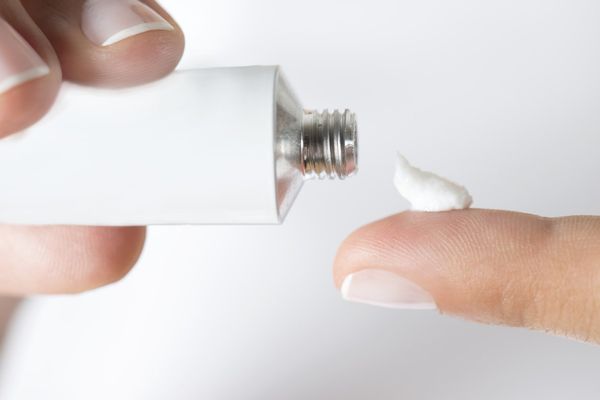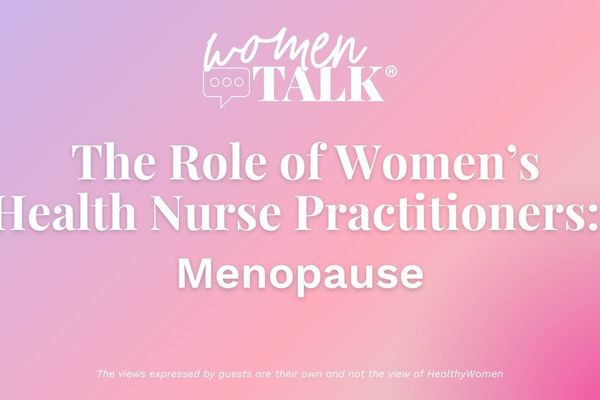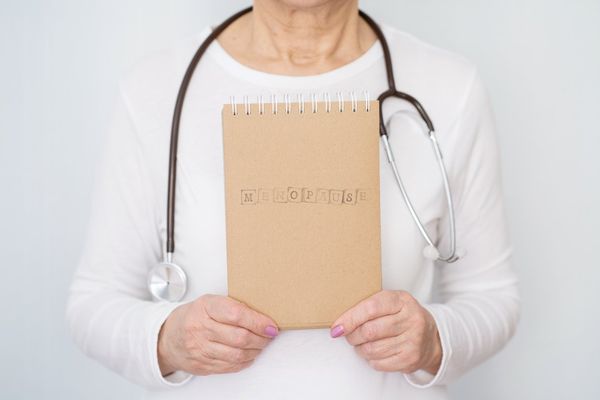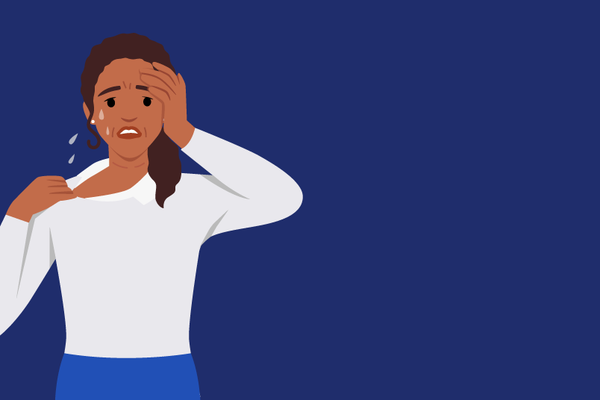For Leslie Mac, it started with irregular menstrual periods. Mac, a digital strategist and organizer, didn't think much of it, but once she started going months without menstruating, she decided to see her doctor. "Something must be wrong," she remembered thinking.
She was not expecting to hear that, at 28, she had already entered perimenopause, the transition to menopause.
"I didn't even know it was possible to start the process so early," Mac explained. By 34, she received a diagnosis of menopause, which is officially diagnosed when a woman goes a year without a menstrual period.
Menopause is a normal part of a woman's life and signals the end of the reproductive years. In the U.S., this typically occurs around age 51, but 5% of women have early menopause, which occurs between ages 40 and 45, and 1% experience premature menopause, which occurs before age 40.
While age of diagnosis may differ, premature and early menopause follow the same process as usual menopause. As women age, the levels of the hormones estrogen and progesterone in their body begin to decline. In premenopausal women, the ovaries produce these hormones in a regular cycle, and they're important for both reproductive and overall health.
"You have estrogen receptors everywhere in your body," explained Dr. Barb DePree, director of the Women's Midlife Services at Holland Hospital, founder of MiddlesexMD and a member of HealthyWomen's Women's Health Advisory Council.
Estrogen affects multiple organ systems, including the cardiovascular, nervous and skeletal systems. During perimenopause, the ovaries begin producing less estrogen and progesterone. Eventually, the ovaries stop production completely.
Causes and symptoms
In about two-thirds of women who go through premature or early menopause, physicians can't identify a cause, according to DePree. In some cases, like the surgical removal of ovaries, the cause is obvious. This procedure may be used to treat ovarian cancer and endometriosis and is used preventively in women with increased risk of breast or ovarian cancer. Other cancer treatments, namely chemotherapy and radiation, are toxic to the ovaries and may induce early menopause as well.
In women with certain autoimmune diseases, such as rheumatoid arthritis, the immune system can target the ovaries, shutting them down at a young age. In other cases, like Mac's, a genetic predisposition makes someone more susceptible to early or premature menopause. Chromosomal abnormalities like Turner syndrome and Fragile X syndrome may also lead to premature menopause.
The first sign a woman is entering perimenopause is variation in her periods. “Typically, what we use to help identify women in perimenopause is a change in periods," DePree said. “Associated with that, oftentimes, are cyclic night sweats."
But the menopausal experience differs from woman to woman. Some don't experience any symptoms at all. According to Dr. Wen Shen, in the division of gynecology at Johns Hopkins and director of the Menopause Consultation Clinic, most experience some moderate symptoms, commonly hot flashes and irregular bleeding. Other symptoms are night sweats, sleep issues, vaginal dryness, loss of libido, mood changes and weight gain.
In addition to menopausal symptoms, early and premature menopause put women at risk for later health complications. They're more likely to develop cardiovascular disease, osteoporosis, mood disorders and early onset dementia.
Treatment
Hormone therapy with estrogen and progesterone or progestin (a synthetic version of progesterone) can be an effective way for women to manage symptoms and reduce health risks.
“Estrogen is an important protective hormone, and by missing out on a decade or more of that, they are at greater risk of chronic conditions," DePree said.
Premature or early menopause leads to ovarian failure at least six years earlier than average, which means progesterone and estrogen levels drop off that much earlier. Taking hormone therapy until the average age of menopause means the body gets a few more years of exposure to higher hormone levels, which provides health benefits.
"That will help maintain their heart, bone and brain health so that they do not have an early heart attack, early onset dementia or osteoporosis," Shen explained.
Long-term hormone therapy may raise the risk of developing breast cancer and it's not recommended for women at an increased risk for blood clots; however, according to Shen, the benefits of being on hormone therapy until the average age of menopause outweigh the risks for young women.
Early and premature menopause don't just have physical repercussions; there are emotional ramifications as well. When Mac received her diagnosis, she felt a sense of loss. At first, it made her ask, “What does womanhood mean for me? What does it mean to have this piece of womanhood no longer in my life anymore — and at such a young age?" Talking through those feelings with her support system was important for Mac.
For women who want to have children, Shen often sees anger and grief. When she encounters patients who may be approaching early or premature menopause with concerns about fertility, she refers them to reproductive endocrine infertility specialists. Interventions like in vitro fertilization may help some women become pregnant.
"Sometimes, there isn't the option to do that, but at least have that conversation" Shen said.
The experience can also be isolating. "Six thousand American women become menopausal every day, and only 1% of those are under the age of 40.
“None of my friends were going through this," said Mac. “I didn't have a lot of people my own age to talk to."
That changed when she tweeted about premature menopause and other women shared their experiences. "That felt really good to feel like I wasn't so isolated," Mac said.
“I think that the more women who know about this, the more knowledgeable we can be and not feel as broken."
Resources:
- JoAnn Pinkerton, M.D., Speaks With HealthyWomen About Hormone Therapy for Menopause ›
- Perimenopausal Breast Tenderness ›
- When Cancer Leads to Early Menopause ›
- I Went Through Menopause Early to Prevent My Cancer from Coming Back - HealthyWomen ›
- Women Deserve Care from Healthcare Providers Who Understand Menopause - HealthyWomen ›
- 3 Tips for Finding a Healthcare Provider Who Specializes in Menopause - HealthyWomen ›
- Signs of Early Menopause - HealthyWomen ›







